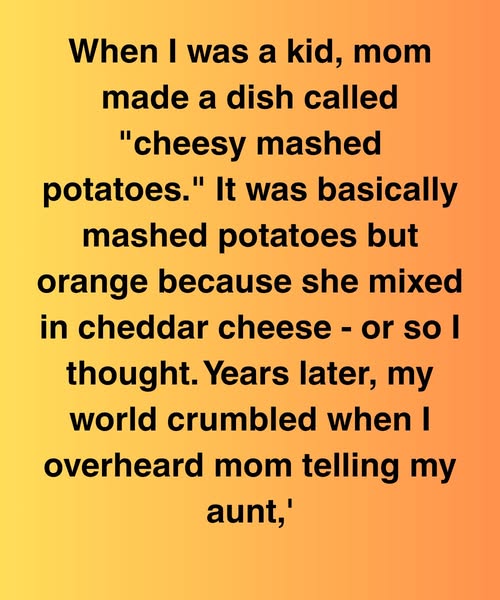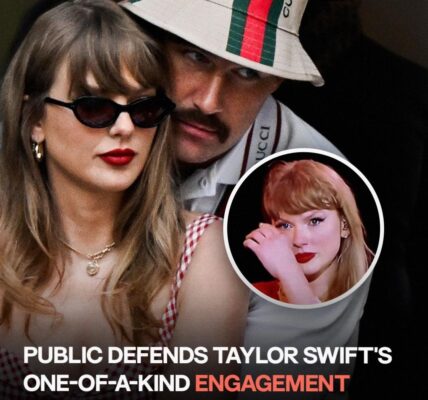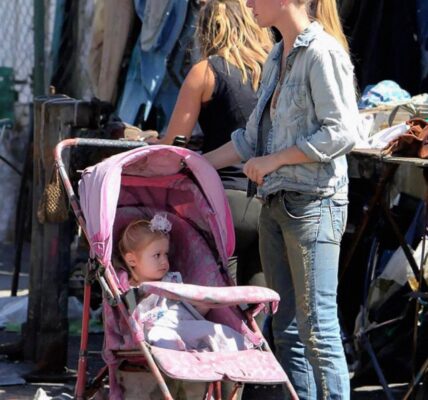When I was a kid, Mom made a dish called “cheesy mashed potatoes.” It was basically mashed potatoes but orange because she mixed in cheddar cheese—or so I thought. Years later, my world crumbled when I overheard Mom telling my aunt, “We didn’t have enough money for real cheese, so I used those government blocks—they melted better anyway.”
I remember standing in the hallway, frozen. I must’ve been around 22, home from college for the summer. I wasn’t angry, exactly—it just hit different. That dish was my comfort food, the taste of birthday dinners and sick days, of coming home after scraped knees or spelling bee wins. I thought it was love in a bowl. Turns out, it was survival.
I didn’t say anything at the time. I just slipped into the kitchen, poured myself some water, and stared at the linoleum floor while Mom chatted in the next room like she hadn’t just detonated a childhood memory. It wasn’t the fake cheese that got me—it was realizing how hard she must’ve worked to hide just how tight things were back then.
Over the next few weeks, that realization started coloring in a lot of gaps. Like how our clothes were always “gently used” from Aunt Nadiya’s kids, or why the power would randomly go out for a few hours and Mom would light candles like it was a fun game. Or how the lunchbox I carried in third grade had “Property of Cascade Mental Health” written on the bottom in faded Sharpie. I’d just thought it was some weird brand name.
One night, I asked Mom about it. We were folding laundry, and I casually said, “Hey, remember those cheesy mashed potatoes you used to make?”
She gave me a little smile, “Your favorite.”
I nodded. “Was it really government cheese?”
She didn’t flinch. Just kept folding. “Yep. That orange brick stuff from the pantry box. Had to shave it with a knife—it didn’t come pre-shredded like the fancy kind.”
I don’t know what I expected. Some apology? An explanation? But she just moved on to folding socks, like it was no big deal.
And maybe it wasn’t.
But that moment cracked something open in me. I started asking more questions—not just about the food, but about everything. Why we moved three times in one year. Why Dad always seemed to “have a project out of town” during holidays. Why we didn’t have a landline for most of my childhood.
Turns out, Mom had been juggling more than I ever knew.
Dad wasn’t a deadbeat exactly, but he was what Mom called “casually unreliable.” He’d show up with bags of fireworks on the Fourth of July but miss birthdays and sometimes rent payments. He was charming and fun, and totally allergic to responsibility. By the time I was nine, she’d stopped counting on him.
That’s when she started cleaning houses on the side. She’d leave early on Saturdays with a mop in one hand and her walkman clipped to her jeans. I always thought she was going to aerobics. It wasn’t until much later that I found out she was scrubbing toilets in homes three neighborhoods over, sometimes with me sleeping in the car outside.
I started carrying all of that with me in college. Not like a burden, but like a weird kind of armor. When other kids complained about cafeteria food, I thought about how Mom used to make spaghetti stretch for three days. When my roommate threw out a tub of yogurt because it was “a little watery,” I remembered scraping the last of a peanut butter jar with a butter knife, knowing we wouldn’t get more until next payday.
Still, I never told anyone. Not really.
I got my degree, landed a marketing job in Chicago, and started living what I thought was the “real” adult life—wine nights, meal prep, group chats about coworker drama. But that old stuff didn’t go away. If anything, it got louder.
I started sending Mom a little money every month, even though she said she didn’t need it. I knew she was still cleaning houses—said she liked staying busy—but I also noticed how she paused more when standing up, or how she’d “forget” to get new glasses even though hers were crooked.
Then came the twist I didn’t see coming.
I was up for a promotion. It was between me and a guy named Marten, who always wore Patagonia vests and said stuff like “synergize our touchpoints.” I stayed late every night for two weeks, barely slept. On the day of the decision, my boss pulled me aside. He said they were impressed with my work ethic, my creativity—and then he asked about my “background.”
He said it like a compliment, but I could feel the barbed wire underneath.
“Just curious,” he said, “because you’ve got this… grit. Like someone who knows how to hustle.”
I laughed, kind of. “Well, yeah. My mom used to clean houses. I grew up on food stamps.”
He blinked. Smiled too wide. “That’s the kind of story we need in leadership. People love a self-starter.”
I got the promotion.
But it felt weird. Like I’d finally opened the vault on my past and someone used it for marketing. I didn’t feel proud—I felt exposed. Like my mom’s struggle was now a quirky bullet point in a corporate PowerPoint.
So I called her.
I told her everything—the potatoes, the hallway conversation, the weird boss moment. She listened without interrupting.
Then she said, “I didn’t hide things from you because I was ashamed. I hid them so you wouldn’t carry it.”
That stopped me cold.
“But now that you know,” she added, “maybe it’s not something you carry. Maybe it’s something you use.”
And that stuck with me.
Over the next few months, I started volunteering with a nonprofit that helped single parents budget and job-hunt. I didn’t tell them I was doing it for my mom—but I was. I helped them write resumes, practice interviews, stretch grocery budgets. It made me feel like the world wasn’t just something that happened to you. You could push back.
Meanwhile, Mom’s knees were getting worse. I begged her to slow down, take fewer clients. She refused. Said she wasn’t “ready to rot.”
So I got sneaky.
I called one of her longest-standing clients, a woman named Ms. Kaur, and offered to take over the cleaning for free—just so Mom could “cut back.” Ms. Kaur laughed and said, “Your mom already does half of it for free. She won’t even take tips anymore.”
Eventually, I convinced Mom to let me pay for her to see a physical therapist. Said it was “early Christmas.” She rolled her eyes but accepted.
Then came the second twist.
At the nonprofit, I met a woman named Talia. She was 28, had two kids, and was trying to leave an abusive relationship. She reminded me of Mom in a way—tired eyes but sharp as hell. We bonded over instant noodles and coupon apps.
One day, she showed up shaking. Her ex had found her new address. She didn’t feel safe. She had nowhere to go.
Without thinking, I gave her my key.
I’d just signed a lease on a second-floor walk-up. Nothing fancy—linoleum and baseboard heaters—but it was safe. I told her she could stay until she figured things out. She cried. I cried. We both ate soggy cereal for dinner.
That moment? That was when it all came full circle.
I’d grown up thinking survival was about hiding your struggle. Pretending your cheese was cheddar. But maybe real strength was about sharing what you had—even if it wasn’t much. Especially then.
Talia eventually got her own place, a job at a bakery, and just last week, she sent me a photo of her youngest wearing a backpack almost as big as he was. First day of pre-K.
Meanwhile, Mom finally agreed to cut her cleaning schedule in half. Said she was going to “re-learn how to sit down without folding something.”
Last month, I surprised her with a dinner at a small bistro in our hometown. Nothing fancy—just good food and wine that didn’t come in a box. When the server came to take our order, Mom grinned and said, “She’ll have the mashed potatoes.”
I laughed. “Only if there’s real cheese.”
We both cracked up.
Later that night, she said, “You know, I used to worry you’d grow up angry. That you’d resent me for the things you didn’t know.”
I looked at her, and I said, “I used to think that dish was love in a bowl. Now I know it really was.”
And it was.
That’s the thing about struggle—it hides in plain sight. In reused lunchboxes. In dimmed lights and discount cheese. But it also shapes you. Makes you resourceful. Teaches you that dignity isn’t about having everything. It’s about making what you do have—time, energy, food—feel like enough for someone else.
So yeah. The potatoes weren’t fancy. But the way Mom made them? That was luxury.
If you made it this far, thanks for reading. If you’ve got someone in your life who made “something out of nothing,” send this their way. And if you grew up on cheese blocks too… you’re not alone.
Tap ❤️ and share this if it reminded you of someone special.




